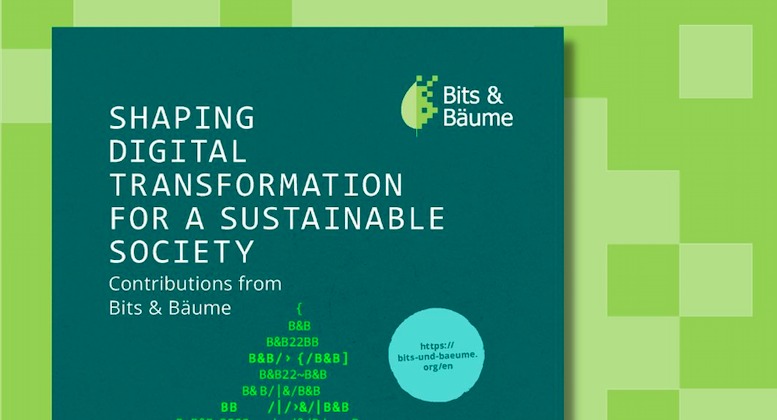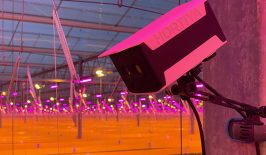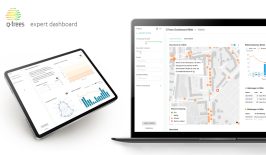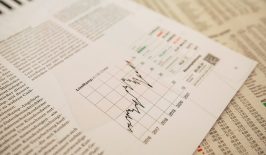Digital tools can help neighbourhoods share regionally generated solar power or support agriculture in its socio-ecological transformation. At the same time, digital transformation poses risks — from the energy consumption of artificial intelligence to the market concentration of the digital economy and the resource hunger of hardware.
So how can society become digital, sustainably? Recently published book ‘Shaping Digital Transformation for a Sustainable Society’ brings together contributions from the Bits & Bäume community, who came together in 2022 for a conference on digitalisation and sustainability in Berlin.
The book addresses a variety of topics. How should artificial intelligence be designed to contribute to sustainable transformation? Or what could a life cycle assessment of software look like? 28 contributions by 68 authors delve into the problems of digital developments and express how digital policy can and must be shaped — now.
Sustainable tech design: Learning from good practice
RESET also contributed. Together with Astrid Aretz, a researcher at the Institute for Ecological Economy Research (IÖW), we discussed in “How digitalisation can help neighbourhoods share electricity” how digital tools help neighbourhoods to share electricity, thus advancing the energy transition.
Based on this, and many other good practice examples, the book shows what sustainably designed digital technologies look like and illustrates that civil society can be an important driver of sustainable change. At the same time, we call upon political forces to involve civil society actors in shaping a sustainable digital future.
The English-language book is available as an online-only publication for free open-access download: Shaping Digital Transformation for a Sustainable Society
We wish you an inspiring read and look forward to you spreading the word about the publication!








